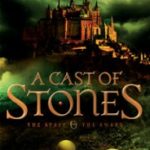Only Human
Recently I read a blog post titled, “Details, Details (Do They Matter?).” In it, the writer relates how a certain reader refused to buy a book because, although good otherwise, it had Black-eyed Susans blooming in May. In case you don’t know – and  why should you? – Black-eyed Susans don’t bloom until summer. And thus was a sale lost.
why should you? – Black-eyed Susans don’t bloom until summer. And thus was a sale lost.
The moral the writer drew from this story is that authors should pay attention to details. The moral I drew is that some readers are far too picky.
It is not that I believe that details don’t matter, or that authors should not make sure of them. Even minor errors can cost a writer credibility, or break the suspension of disbelief and pull the reader out of the story. Research is a necessary part of writing, even for speculative fiction writers who could say that dragon-flowers bloom when the moon is full and red, and nobody could say otherwise. Authors should be scrupulous about their research. A neglect of research can have real consequences, such as losing all of Colorado’s convention delegates.
And still: How much, really, do the Black-eyed Susans matter?
The importance of minor factual slips varies on a number of factors. (These would, incidentally, be different for fiction and nonfiction; I am focusing only on fiction.) The first criterion is whether the Black-eyed Susans (standing for all small details) are scenery or have any broader significance. Details of that order can be keys to certain truths (it happened when the flowers were blooming), or become symbols within the story. The greater the significance, the more the detail matters.
Another factor is whether the inaccurate fact is common knowledge, by which I mean “common knowledge across the continental United States.” Some people forget that what “everybody” knows in their area or social circle could easily be what nobody knows in another city or in another circle. Common knowledge is what any reasonably educated person ought to know, such as who invented electricity or where to find the Pacific Ocean. When the Black-eyed Susans bloom is not common knowledge, nor is there any reason it ought to be.
When the Black-eyed Susans hold no greater significance, and when it’s not the sort of thing a grown-up simply should know, how much do they matter? Not a whole lot, I would say. Certainly not more than the entire book.
Readers who expect no typos, no mistaken details, or no small slips expect too much. Books come to the public neat and pulled-together and all at once; they are made through a long and scattered process, undergoing revisions and surgeries, altered by authors and editors. Every stage of the process is an opportunity to catch mistakes, and to create new ones. It must happen, on occasion, that books emerge from all this human handling without errors. But I wouldn’t expect it, and I don’t know why anybody would require it.
Authors are not geniuses, and even if they were, they’d still be only human. When dealing with human beings, a little forgiveness is always needed.
Even for not Googling when Black-eyed Susans bloom.











































You’re right about the reader being far too picky — ridiculous is more like it. This tells me something about the rejecting reader and not the author. No book is perfect, even speculative ones, and we should all be a lot more forgiving of little gaffes that make no difference. I am not speaking of major historical or cultural mistakes, though this does not usually affect spec fic writers because they deal with the fantastical and can make their Susans bloom in midwinter if they like. Speculative stories set in another time are harder to pull off and yes, great care must be exercised. There were no flintlocks in 1066, and the Romans of Caesar’s day did not speak Italian. Errors like these are ludicrous, even inexcusable, but not the blooming Susans. We should always strive to make our stories as true as we can, which requires diligence and no small amount of hard work. Thank you for reminding us how frail we can be. And the kindness we ought to show one another when we do goof.
Oh my gosh! Why even…I mean….c’mon!
Honestly, I wouldn’t know when black-eyes Susans bloom. And honestly, it wouldn’t matter to me. But if the fact that these flowers bloomed in May was an integral part of the story, the author should care enough to get it right. Even contemporary stories need research. For example, if a story is set in Denver, and the character is trying to go west on 6th Avenue east of Colorado Boulevard, when I know 6th Avenue only goes east, that would cause me to question the author’s credibility. Which is why I like to create my towns and cities. But as HG Ferguson so aptly puts it, no book is perfect. Perhaps some readers are loan officers at heart, simply looking for a reason to say “no” to a particular book. 🙂
I think I’ll write a story, a story about the spring that the Mapleleafs won the World Series. A story about the time in May 1983 I celebrated Thanksgiving with Elvis. A story about driving a few miles outside of Ulaanbataar to see Niagara Falls.
I guess you could say I agree with the picky reader. Personally, I wouldn’t know when almost any flower blooms, but if I’m going put a flower in a story, even if it’s only briefly, I should learn enough to know when and where it’s blooming, or come up with a reason for it to be acting in a strange way.
Because there are people who would know that kind of thing, and would spot a mistake like that. Just as I have might spot, for example, a mistake in a scene involving a chess game, and know that the writer has no idea what chess is really like.
It’s not the reader’s fault for knowing when a certain kind of flower blooms, it’s the writer’s fault for not knowing it.
It depends on the information that the author gets wrong. If it’s something he or she could have found out by Googling in five minutes, I don’t really cut them any slack. If its something obscure, I’m less likely to mind. But when I find supposedly ordinary horses galloping for three days straight, characters grabbing only obviously-perishable food before trekking off into the desert, and land grants from the King of Scotland decades after Scotland and England were united (and said grants were supposedly given in the middle of the American Revolution)–I tend to get irritated. This is the information age. There are entire communities online devoted to Getting Things Right. It’s not that hard to look up when flowers bloom.
My model for research is the historical fiction author Rosemary Sutcliff, who was meticulous about it, even though she did most of her writing in the pre-internet era, and lived with disabilities that left her in a wheelchair.
I just disagree with this article because I’m tired of the idea that being nice means ‘never criticizing anyone’s work.’ There’s nothing rude about politely telling someone, ‘you got a fact wrong in your writing.’ It’s only a problem if the critic is rude. But pointing out flaws is not, in and of itself, rude.